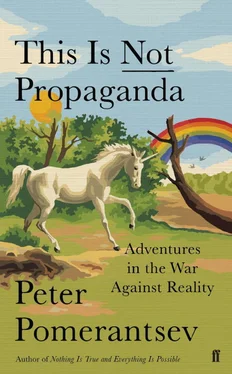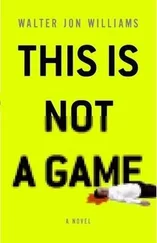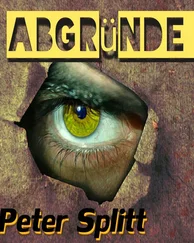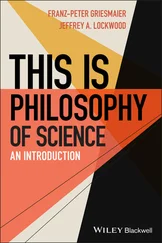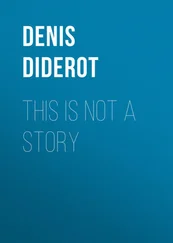Peter Pomerantsev
THIS IS NOT PROPAGANDA
ADVENTURES IN THE WAR AGAINST REALITY
He came out of the sea and was arrested on the beach: two men in suits standing over his clothes as he returned from his swim. They ordered him to get dressed quickly, pull his trousers over his wet trunks. On the drive the trunks were still wet, shrinking, turning cold, leaving a damp patch on his trousers and the back seat. He had to keep them on during the interrogation. There he was, trying to keep up a dignified facade, but all the time the dank trunks made him squirm. It struck him they had done it on purpose. They were well versed in this sort of thing, these mid-ranking KGB men: masters of the small-time humiliation, the micro-mind game.
Why had they arrested him here, he wondered, in Odessa, not where he lived, in Kiev? Then he realised: it was August and they wanted a few days by the seaside. In between interrogations, they would take him to the beach to go swimming themselves. One would sit with him while the other would bathe. On one of their visits to the beach an artist took out an easel and began to paint the three of them. The colonel and major grew nervous – they were KGB and weren’t meant to have their images recorded during an operation. ‘Go have a look at what he’s drawing,’ they ordered their prisoner. He went over and had a look. Now it was his turn to mess with them a little: ‘He’s not drawn a good likeness of me, but you’re coming out very true to life.’
He had been detained for ‘distributing copies of harmful literature to friends and acquaintances’: books censored for telling the truth about the Soviet Gulag (Solzhenitsyn) or for being written by exiles (Nabokov). The case was recorded in the Chronicle of Current Events. The Chronicle was how Soviet dissidents documented suppressed facts about political arrests, interrogations, searches, trials, beatings, abuses in prison. Information was gathered via word of mouth or smuggled out of labour camps in tiny self-made polythene capsules that were swallowed and then shat out, their contents typed up and photographed in dark rooms. It was then passed from person to person, hidden in the pages of books and diplomatic pouches, until it could reach the West and be delivered to Amnesty International or broadcast on the BBC World Service, Voice of America or Radio Free Europe. It was known for its curt style:
‘He was questioned by KGB Colonel V. P. MEN’SHIKOV and KGB Major V. N. MEL’GUNOV. He rejected all charges as baseless and unproven. He refused to give evidence about his friends and acquaintances. For all six days they were housed in the Hotel New Moscow.’
When one interrogator would leave, the other would pull out a book of chess puzzles and solve them, chewing on the end of a pencil. At first the prisoner wondered if this was some clever mind game, then he realised the man was just lazy, killing time at work.
After six days he was permitted to go back to Kiev, but the investigation continued. On the way home from work at the library, the black car would pull up and take him for more interrogations.
During that time, life went on. His fiancée conceived. They married. At the back of the reception lurked a KGB photographer.
He moved in with his wife’s family, in a flat opposite Goloseevsky Park, where his father-in-law had put up a palace of cages for his dozens of canaries, an aviary of throbbing feathers darting against the backdrop of the park. Every time the doorbell rang he would start, scared it was the KGB, and would begin burning anything incriminating: letters, samizdat articles, lists of arrests. The canaries would beat their wings in a panic-stricken flutter. Each morning he rose at dawn, gently turned the Spidola radio to ‘ON’, pushed the dial to short-wave, wiggled and waved the antenna to dispel the fog of jamming, climbed on chairs and tables to get the best reception, steering the dial in an acoustic slalom between transmissions of East German pop and Soviet military bands, pressing his ear tight to the speaker and, through the hiss and crackle, making his way to the magical words: ‘This is London’; ‘This is Washington.’ He was listening for news about arrests. He read the futurist poet Velimir Khlebnikov’s 1921 essay ‘Radio of the Future’:
Radio will forge the unbroken chain of the global soul and fuse mankind.
The net closed around his circle. Grisha was taken to the woods and roughed up. Olga was accused of being a prostitute and, to make the point, was locked up in a VD clinic with actual prostitutes. Geli was taken to remand prison and refused treatment for so long that he went and died.
Everyone prepared for the worst. His mother-in-law taught him a secret code based on sausages: ‘If I bring sausages sliced right to left, it means we’ve been able to get out news of your arrest to the West, and it’s been broadcast on the radio. If I slice them left to right, it means we failed.’
‘It sounds like something out of an old joke or a bad film, but it’s nevertheless true,’ he would write later. ‘When the KGB come at dawn, and you mumble drowsily, “Who’s there?” they often shout, “Telegram!” You proceed in semi-sleep, trying not to wake up too much so you can still go back to a snug dream. “One moment,” you moan, pull on the nearest trousers, dig out some change to pay the messenger, open the door. And the most painful part is not that they have come for you, or that they got you up so early, but that you, like some small boy, fell for the lie about delivering a telegram. You squeeze in your hot palm the suddenly sweaty change, holding back tears of humiliation.’
At 08.00 a.m. on 30 September 1977, in between interrogations, their child was born. My grandmother wanted me to be called Pinhas, after her grandfather. My parents wanted Theodore. I ended up being named Piotr, the first of several renegotiations of my name.
*
Forty years have passed since my parents were pursued by the KGB for pursuing the simple right to read, to write, to listen to what they chose and to say what they wanted. Today, the world they hoped for, in which censorship would fall like the Berlin Wall, can seem much closer: we live in what academics call an era of ‘information abundance’. But the assumptions that underlay the struggles for rights and freedoms in the twentieth century – between citizens armed with truth and information and regimes with their censors and secret police – have been turned upside down. We now have more information than ever before, but it hasn’t brought only the benefits we expected.
More information was supposed to mean more freedom to stand up to the powerful, but it’s also given them new ways to crush and silence dissent. More information was supposed to mean a more informed debate, but we seem less capable of deliberation than ever. More information was supposed to mean mutual understanding across borders, but it has also made possible new and more subtle forms of conflict and subversion. We live in a world of mass persuasion run amok, where the means of manipulation have gone forth and multiplied, a world of dark ads, psy-ops, hacks, bots, soft facts, deep fakes, fake news, ISIS, Putin, trolls, Trump…
Forty years after my father’s detention and interrogation, I find myself following the palest of imprints of my parents’ journey, though with none of their courage, risk or certainty. As I write this – and given the economic turbulence, this might not be the case when you read it – I run a programme in an institute at a London university that researches the newer breeds of influence campaigns, what might casually be referred to as ‘propaganda’, a term so fraught and fractured in its interpretation – defined by some as deception and by others as the neutral activity of propagation – that I avoid using it.
Читать дальше
